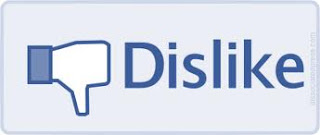This morning you probably went through your typical routine. You woke up, brushed your teeth, combed your hair, and checked your Facebook, which probably resulted in a mini crisis. After you scratch your head a couple times you text your best friend and complain about how your whole day is now thrown off.

This week Mark Zuckerberg announced that the Facebook we all know and love is undergoing a few changes that will help to increase user engagement and member sharing, and some people aren't happy about it. The real question is why are we so upset by these recent changes? Before I dive into that question, let’s take a look at just a few of Facebook’s recent changes:

- the introduction of a "Timeline" that will document certain milestones of your Facebook "life"
- developing new ways to share music/video with friends and even watch TV by teaming up with third-party websites like VEVO and Hulu
- a new, smaller scrolling news feed on the right side of the screen (similar to a Twitter feed)
- an updated homepage layout
- a blue corner on stories in your news feed that Facebook “thinks" you will find interesting
- you will soon be able to do more than just “like” a friend's picture or status. Soon you will be able to click "watched" on a video, "listened" to a song, and a plethora of other verbs.
Some believe that Facebook has made these recent changes in in a reactionary move to all the hype surrounding Google+, which has been toted with bearing much more user friendly, functional utilities.
There have been mixed emotions when it comes to these changes, which can be seen all over blogs, Twitter, and ironically, Facebook itself. Some argue that they are pushing the envelope even further when it comes to privacy and security. Although, security and privacy concerns seem to be outweighed by the sheer fact that people just don’t like change.
It's understandable that in a world of rapidly changing technology and social media outlets, that it's important to stay relevant, fresh and innovative. Although, I think it can be argued that even though change is good, maybe not all at once. Facebook is a website that most of us use on a daily basis and by changing so much, so fast, it's bound to upset a few people. It has yet to be seen if this was a smart move on Facebook's part.
The following is a video of Mark Zuckerberg unveiling one of Facebook's newest features at the F8 Conference in San Francisco earlier this week.
What is your take on the recent Facebook Facelift? Do you think these changes are a smart move for their business, or will too many changes deter people from using?















